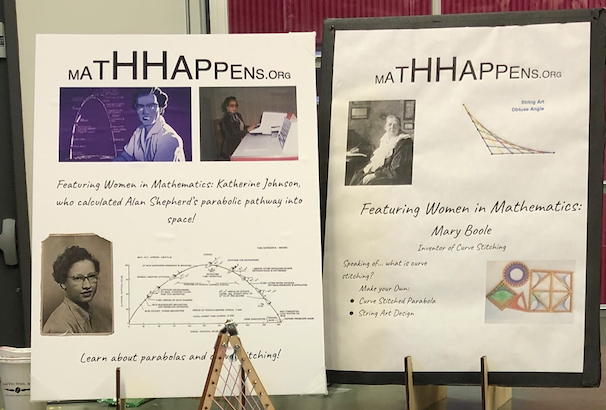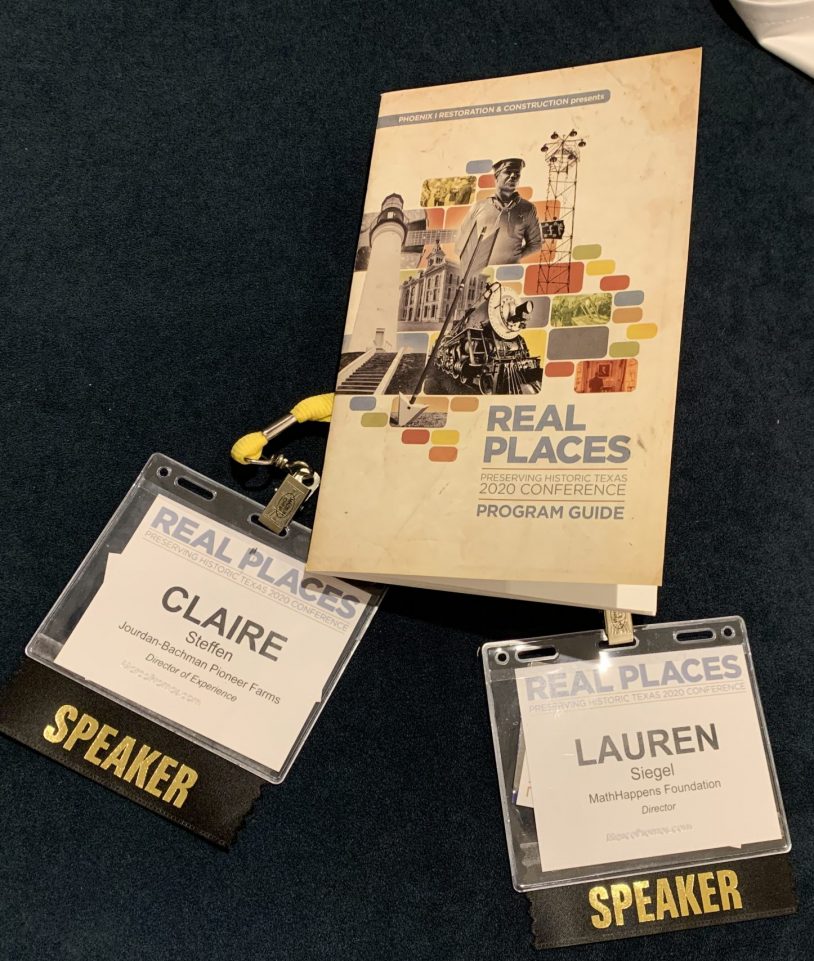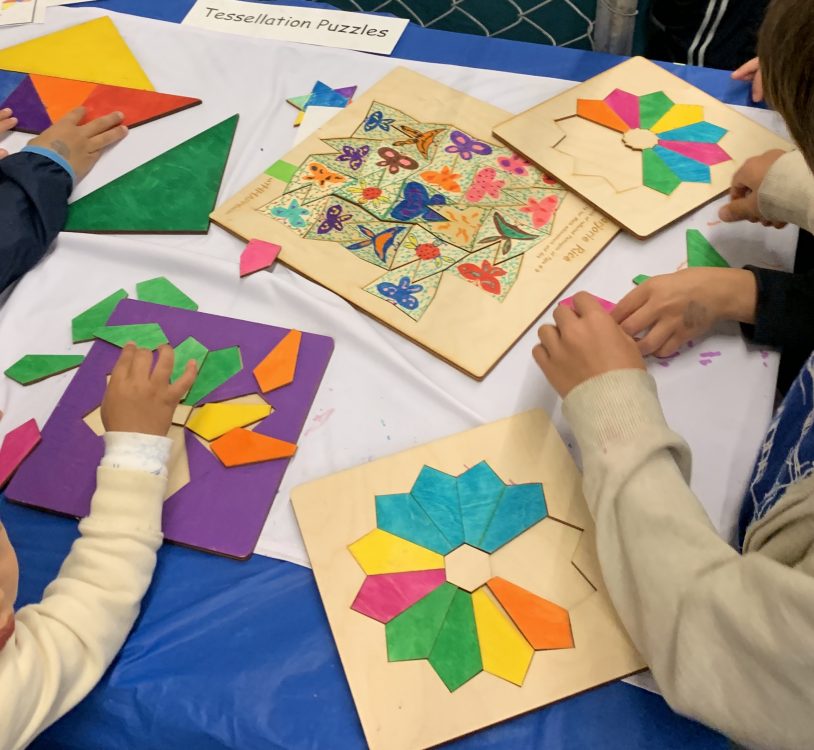If you are a fan of museums, then you have seen something like this object before… probably dozens of times. This impressive artifact is a nocturnal from La Belle and it can be used to tell time at night by the positions of the stars. As historic artifacts and symbols of exploration and discovery, navigation tools like this one spark
…
Take and Make: Parallel Ruler and Compass Rose
In 2019, we brought our suite of Navigation Math to New York to share how we relate math to Texas History and the voyage of La Belle which is on exhibit at the Texas State History Museum. Files to make our version of the Parallel Ruler are here. Files to make our version of the Compass Rose are here. Participants
…
Webinar: Making the Most of Math Connections at your Museum or Historical Site
Elizabeth Lay, Claire Steffen and I had the opportunity to present a webinar through the Texas Historical Commission today. We discussed ways that museums can enhance visitor experiences with math, showed a variety of examples of math activities at museum locations and talked about our process in developing connected activities. Our Presentation Slides are here The Handout Recording Hosted by
…
Awesome Math Making Ideas from Other People – Napiers Bones
Here’s an excerpt of a twitter conversation. Day before yesterday Aida wrote to get access to some of our files and ideas. Yesterday she made this amazing version of Napiers Bones that is in the National Archeological Museum in Madrid. Today I’m inspired by her project and want to know more about this version and I want to see that
…
Women in Steam at the Thinkery
Women in Mathematics! Katherine Johnson calculated trajectories, parabolic and otherwise for NASA in the 1960s. Almost 70 years earlier Mary Boole invented curve stitching to teach the mathematical properties of parabolas to children. We made some really great foldable parabolas to connect to the work of both these women in math. Here’s the laser file – we cut the holes
…
2020 Real Places Conference!
Elizabeth Lay, our math in history expert anchored our exhibit table and Claire Steffens, Director of Experience for Pioneer Farms co-presented with MathHappens Foundation Director Lauren Siegel. Go Team! We had a great time. Some links and information: We learned to use laser cutters at Austins own laser coop: MakeATX For a short and informative explanation of Golden Calipers
…
MathHappens @ MoMath and A Great Evening in NY City.
We had a great evening with the MoMath Family Friday Audience with well over 100 people! Tessellating abounded. This display of Michelle Tat’s creative interpretations of the fifteen pentagons was very popular for photos after our talk! Did you notice the #1 tiling for the 40x 70″ display? We made a template you can laser cut and then trace. Our
…
See you at MoMath!
Join us a fun Family Friday, 10 January 2020 at the National Museum of Mathematics in New York City! Pentagonal Pursuit: Solving a Century-Old Tiling Problem — Explore the many types of tessellating tiles and decorate your favorites. Take away stories, art and patterns to inspire more discovery at home. Register now to save your spot! Follow us on Instagram
…
HEB Free Sunday at the Texas State History Museum – November 3
We had a special treat for HEB Sunday! Caroline Ainslie of Bubbly Math was on hand to make a geodesic dome from balloons. We had a great team for the day including Michelle Tat, Lauren Siegel, Marybeth Barnstone, Millie Barnstone, Emmie Chng, Josephine Sheng, Caroline Ainslie, Samantha Trevino and Nina Hunt~ Samantha, Emmie, Josephine, Nina and some guest MH staffers
…
Advice from the MOXI Museum on Golden Ratio Exhibit
Comments from the MOXI Museum in Santa Barbara. They liked the Golden Ratio Calipers and decided to make their own and set up a self guided exhibit. They’ve got some great advice for any museum interested in doing this too. “I have in fact used your files in a crude way and brought out some ratio calipers in my museum’s
…









